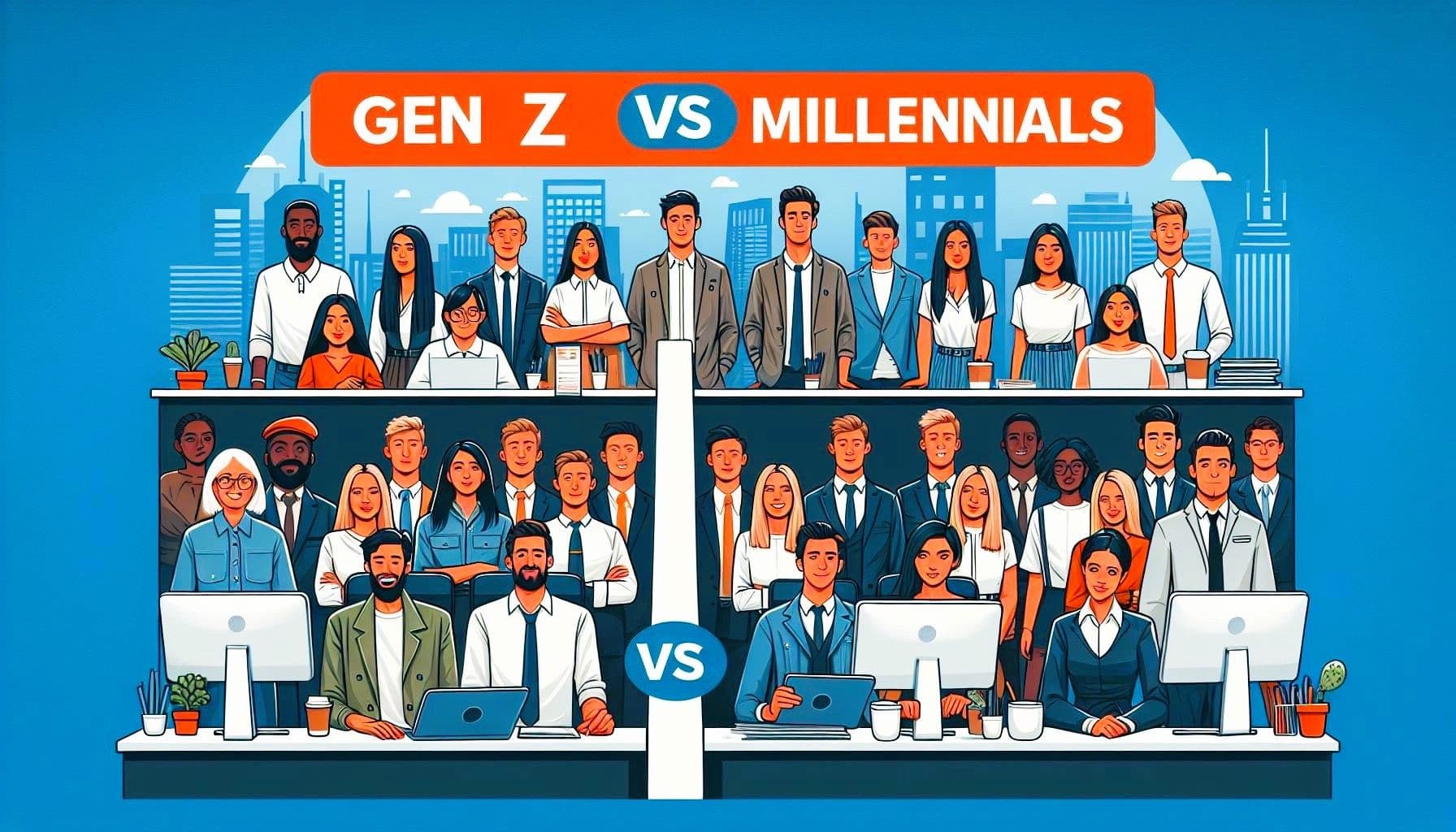In the diverse, multigenerational modern work environment, employees of varying ages, ambitions, and experiences are creating new business paradigms. This dynamic shift is largely fueled by Millennials and Generation Z, each contributing their unique viewpoints, experiences, and work ethics. Millennials currently make up the most substantial portion of the workforce. Meanwhile, Generation Z, who are just stepping into their careers, are not far behind their predecessors in terms of work perspectives. Although these two generations have similar viewpoints on professional life, they exhibit distinctive traits and values, strongly manifested in their professional behaviors and attitudes. These unique characteristics are not just superficial differences, but they profoundly influence their work outlook and task-tackling strategies, which may significantly vary from one generation to the other.This blog is designed to highlight the distinct characteristics of Millennials and Gen Z in the workplace, their unique expectations, and what differentiates them. By delving into these intriguing dynamics, we will reveal the noteworthy contrasts between these two generations, paving the way for a deeper understanding of the fast-changing workforce. Look, getting these differences isn't just some boring theory stuff - it's super important for both companies and job hunters from these two generations. When you think about what they're after in a job, you realize there's a lot on the line. Plus, these two generations can totally learn from how each other works and pick up some cool tricks along the way.

